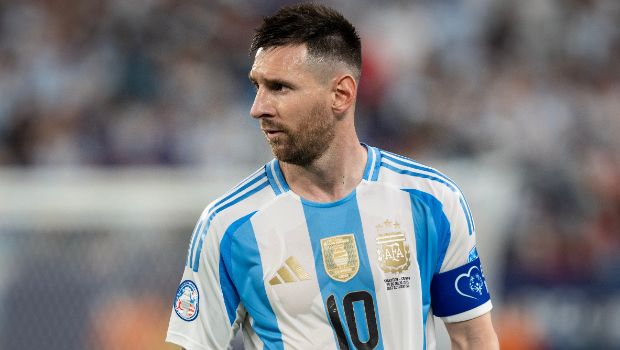
In the 82nd minute of Barcelona’s 1-0 victory over nearby rival Espanyol on October 16, 2004, manager Frank Rijkaard made a change. The only goal scorer in the match, Deco, was replaced by 17-year-old Lionel Messi from Argentina.
The intense, shaggy-haired youth, who was acquired from Newell’s Old Boys as an undersized 13-year-old, didn’t accomplish anything in his eight minutes on the field. He would, in reality, play mostly for the Barcelona B team during the 2004–05 season, and it would take until May of that same year for him to score his first goal for the senior club. All that transpired, however, began with those eight minutes.
Wednesday marked the 20th anniversary of Messi’s professional debut, which launched a career that has since produced several accomplishments. Those accolades include three FIFA Club World Cup victories, nearly 20 domestic cups and super cups, numerous varieties of Golden Boots and Balls, more than 800 goals, more than 50 hat tricks, and the most assists of any soccer player in history.
In addition, there have been eight Ballons d’Or, four UEFA Champions League titles, a FIFA World Cup title, an Olympic gold medal, two Copa America titles, and 12 league titles (and one Supporters’ Shield!). Messi was recently ranked as the third-greatest athlete and finest soccer player of the twenty-first century by ESPN. His best seasons exceeded all expectations, and his lowest-ranked seasons were excellent.
Everybody needs to start somewhere. Messi made his debut at the age of 17 years, 3 months, and 22 days. He played primarily for Barca B, accumulating the majority of his minutes (17 games, 6 goals) as a substitute. On May 1, 2005, following a characteristically outrageous dinked pass from Ronaldinho, he scored his first goal as a professional against Albacete. The first of numerous.
We go back in time to a year close to the end of his career, from the beginning. The main thing that characterized Messi’s first season at PSG was that he was with PSG at all. Messi said a sorrowful goodbye to Barca in 2021 as a result of the team’s dire financial problems, which were at least partially caused by pricey purchases made to make him happy. The majority of the 2021–22 season saw him play in a nearly muted manner.
Messi showed that he was ready for the Champions League by scoring five goals in the group stage. He also enjoyed playing with his new colleagues, Kylian Mbappé and Neymar, as PSG easily won Ligue 1. His most notable performances, however, came with Argentina over the summer, as he scored five goals in a friendly against Estonia and contributed two assists to their Finalissima victory (Copa America winner vs. Euros winner), a development that is not unheard of in the later stages of his career.
We’re cheating on time with this entry because Major League Soccer won’t be played on the same timeline as European soccer. After making his Inter Miami debut in late July 2023, Messi is now almost 15 months into the 2024 regular season; due to age-related absences and injuries, he has played 35 matches in an MLS uniform, and guess what? That’s roughly the number of games in a season! Thus, we will count it all as 2023–2024.
Messi’s MLS career has gone roughly as one might anticipate, minute by minute. His average of 0.72 assists per 90 has surpassed the record he established in 2011–12 while generating 30 assists for Barca. Additionally, his average of 0.99 goals per 90 is the highest in five years. In his debut, he scored the game-tying goal in stoppage time, signaling the start of the magic.
